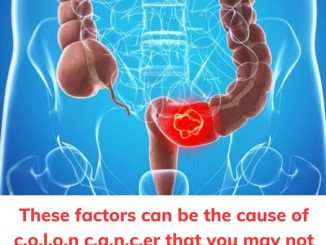
A Fresh Way to Think About Cancer Risk and Your Daily Habits
Cancer is complex. There’s no magic beverage or miracle menu that prevents or cures it. Still, research does highlight patterns inside the body where abnormal cells tend to do better—like areas with low oxygen, plenty of glucose, and a slightly acidic tumor microenvironment. That’s sparked interest in “alkaline” habits and plant-forward eating. Here’s the nuance: you can’t change your blood pH with food, but you can improve overall health with smarter choices that influence weight, inflammation, and metabolism—factors tied to cancer risk. MD Anderson Cancer CenterAmerican Institute for Cancer Research
Myth vs. Fact: Can Diet “Alkalize” Your Blood?
Let’s clear this up early. Your lungs and kidneys keep blood pH locked around 7.4; food doesn’t budge it. If blood pH drifts, it’s a medical emergency, not a menu issue. What diet can change is urine pH—useful for kidney stone risk, not a lever for treating cancer. So skip the hype and focus on patterns that strengthen health: more plants, fewer ultra-processed foods, steady movement, restful sleep. medlineplus.govCleveland ClinicCancer Research UK – Cancer News
What the Science Actually Says About the “Acidic” Tumor Microenvironment
Many cancers favor fast glycolysis (the “Warburg effect”) and export acid into their local surroundings, making the tumor area more acidic. That’s a property of cancer metabolism—not your overall blood pH. Changing what you eat won’t neutralize tumor acidity, but plant-rich, fiber-forward diets improve body weight, insulin sensitivity, and inflammation, all linked to risk reduction. Think “terrain” support, not pH tinkering. PMCphysoc.onlinelibrary.wiley.comAmerican Institute for Cancer Research
Sugar, Oxygen, and Movement: Getting the Details Right
- Sugar: The idea that “sugar feeds cancer” oversimplifies biology. Glucose fuels all cells. Cutting carbs entirely doesn’t “starve” tumors; your body will make glucose if needed. The smarter target is overall dietary quality and maintaining a healthy weight. Memorial Sloan Kettering Cancer CenterCancer Research UK – Cancer News
- Oxygen: Regular physical activity increases oxygen delivery, improves insulin sensitivity, and supports immune surveillance. You’re not “oxygenating” tumors with a few deep breaths—you’re building a healthier system over time. (Bonus: movement helps manage stress.)
- Ultra-Processed Foods: Diets heavy in UPFs correlate with higher cancer risk in observational data; more whole foods is a safer bet while the science evolves. Health
Lemon Water, Alkaline Water, and Citrus Claims—What’s Real?
Lemons taste acidic but metabolize to compounds that can make urine more alkaline; they don’t change blood pH. If you love lemon water, enjoy it for hydration, vitamin C, and flavor—just don’t expect it to “alkalize your body.” Use a straw and rinse afterward to protect enamel. Healthline
Video : FOODS THAT CAN KILL CANCER STEM CELLS!
Build an “Alkaline-Style” Plate (Without the Pseudoscience)
You don’t need to micromanage pH charts. Use this simple, evidence-aligned template that mirrors what major cancer centers already recommend:
- Pile on plants: ½ to ⅔ of your plate as vegetables, fruits, legumes, and whole grains.
- Quality proteins: Beans, lentils, tofu, fish, eggs, or modest portions of lean poultry; limit processed meats.
- Smart fats: Olive oil, nuts, seeds, avocado.
- Limit the usual suspects: Sugary drinks, refined carbs, ultra-processed snacks, and heavy alcohol.
These shifts support weight, metabolic health, and long-term risk—without promising the impossible. MD Anderson Cancer Center
Grocery List for a Plant-Forward, Cancer-Smart Kitchen
- Leafy greens: Spinach, kale, chard (salads, sautés, smoothies).
- Crucifers & colorful veg: Broccoli, cauliflower, peppers, carrots.
- Whole grains: Quinoa, oats, brown rice, millet, amaranth.
- Legumes: Lentils, chickpeas, black/kidney beans.
- Nuts & seeds: Almonds, walnuts, flax, chia.
- Citrus & berries: Lemons, oranges, blueberries, strawberries.
- Pantry helpers: Extra-virgin olive oil, herbs, spices (turmeric, garlic, ginger).
A 1-Day “Balance, Not Hype” Menu
- Morning: Warm lemon water (for hydration), oatmeal with chia, berries, and walnuts.
- Midday: Big salad (kale + quinoa + chickpeas + peppers) with olive-lemon vinaigrette; a citrus fruit.
- Snack: Apple and a handful of almonds.
- Dinner: Lentil-tomato stew with broccoli and brown rice.
- Evening routine: Light walk, gentle stretching, consistent sleep time.
Stress, Sleep, and Breath: The Hidden Levers
Chronic stress and short sleep nudge hormones and appetite in the wrong direction and can drive weight gain. Build a wind-down ritual (screens off, dim lights, same bedtime), and add 5–10 minutes of slow nasal breathing or a brief meditation. Small, repeatable habits change physiology over time.
FAQs You Didn’t Ask (But Should Know)
- Do alkaline waters help? Most people don’t need them; benefits are unproven and they won’t “alkalize” blood. Those with kidney disease should be cautious. Plain water is excellent. Harvard Health
- Is the alkaline diet dangerous? Not if it just means “more plants.” It becomes risky if it’s restrictive enough to shortchange protein, calcium, or iron—especially during treatment. Follow a balanced, inclusive approach. MD Anderson Cancer Center
Safety First: Diet Is Supportive, Not a Substitute
Nutrition and lifestyle are powerful adjuncts, not replacements for screening, diagnosis, or treatment. If you’re at risk or in care, discuss any major dietary shifts with your clinician—especially if you manage blood sugar or kidney issues. MD Anderson Cancer Center
Bottom Line: Choose Balance Over Buzzwords
You can’t “alkalize” your blood with food—and you don’t need to. Focus on what does move the needle: a plant-forward plate, fewer ultra-processed foods, active days, steady sleep, and stress tools you’ll actually use. These evidence-aligned habits support a healthier internal “terrain,” one where long-term disease has fewer advantages—and where you feel stronger, clearer, and more resilient day to day. HealthCancer Research UK – Cancer News
Video : Top 10 Anti Cancer Foods (Part 1) – YOU NEED TO EAT THESE!
Quick Start Checklist
- Fill ½ your plate with vegetables at most meals.
- Walk (or move) 30–45 minutes daily; add two strength sessions weekly.
- Swap one ultra-processed snack/drink for a whole-food option. Health
- Hydrate (lemon optional), sleep 7–9 hours, and keep stress practices short but daily.
Small, consistent steps—grounded in science, not slogans—add up to meaningful change.


